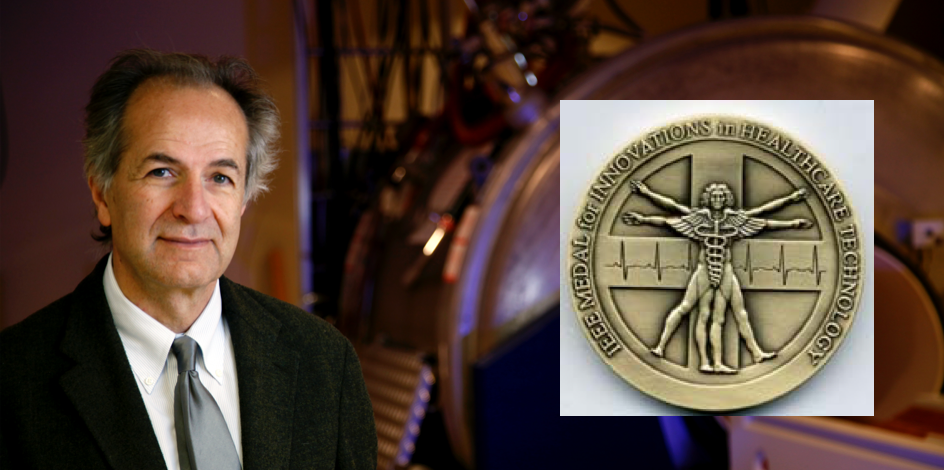Kamil Ugurbil to receive 2019 IEEE Medal for Innovations in Healthcare Technology

Kamil Ugurbil, Director of CMRR, is to receive 2019 IEEE Medal for Innovations in Healthcare Technology “For pioneering the development and leading the advancement of ultra-high-field MRI technology for biomedical and brain research.”
All 2019 IEEE Medals and Recognitions, the highest awards given by IEEE on behalf of the IEEE Board of Directors, will be presented to recipients at the 2019 IEEE Vision, Innovation, and Challenges Summit (VIC Summit) & Honors Ceremony, to take place on 17 May at the Marriott Marquis San Diego Marina, Calif., USA.
2019 IEEE Medal for Innovations in Healthcare Technology recognizes the effort pioneered by Ugurbil and his colleagues in CMRR to exploit very high magnetic fields for human studies in order to enhance the biological information content and resolution of MRI.
Using 4 Tesla for human imaging in ~1990-1991, at a time when the “high field” clinical scanners operated only at 1.5 Tesla, Ugurbil’s team produced one of the two seminal works that introduced functional imaging of brain activity (fMRI)1 .
Justified by a large body of 4 Tesla data and a theoretical understanding of the role played by magnetic field strength in fMRI, CMRR was the first to introduce a 7 Tesla scanner for human studies in ~1999, starting the era of Ultra High Field MRI (defined as 7 Tesla and higher)2. This pivotal initiative was complemented with fundamental studies on the physics of imaging the human body at such high magnetic fields, and the development of high field RF methods and instrumentation3, leading to a flourishing effort in Ultra-High Field imaging worldwide4.
The 7 Tesla work from CMRR catalyzed the commercial availability of 7T scanners with rapidly increasing number of installations, and ultimately led to the recent approval of 7T for clinical diagnosis of brain and musculoskeletal diseases, another milestone for MRI technology in the effort to significantly improve healthcare.
A new exciting development is Ugurbil’s effort to develop the world’s first 10.5 Tesla whole-body human scanner, which has produced the first 10.5 Tesla human images in December 2017. This achievement will usher in another new frontier and exciting opportunities for the next decade with anticipated transformative impact in biomedical research and healthcare.
For more information about the IEEE Awards Program, visit www.ieee.org/awards or e-mail awards@ieee.org.
EurekAlert Science News also carries a notice of this prestigious award.
